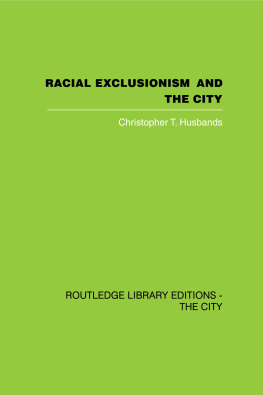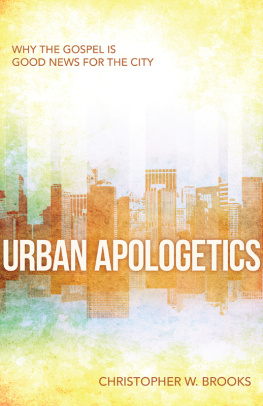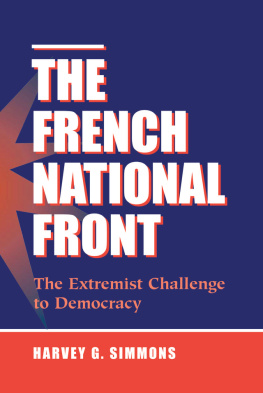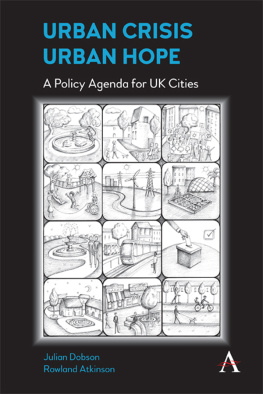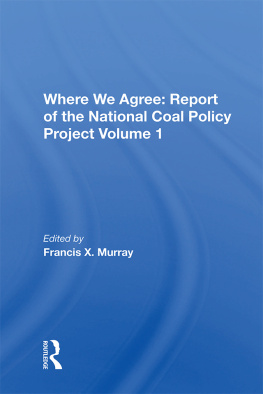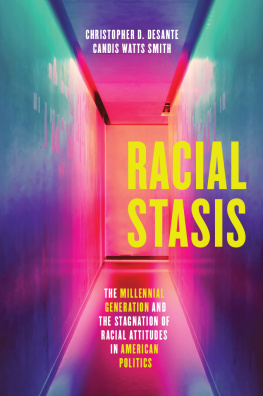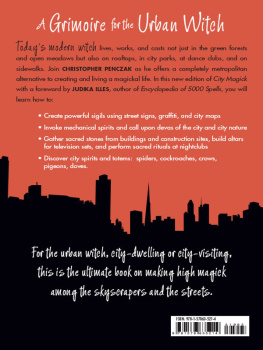First published in 1983
This edition published in 2007
Routledge
2 Park Square, Milton Park, Abingdon, Oxon, OX14 4RN
Routledge is an imprint of Taylor & Francis Group, an informa business
Transferred to Digital Printing 2007
1983 Christopher T. Husbands
All rights reserved. No part of this book may be reprinted or reproduced or utilized in any form or by any electronic, mechanical, or other means, now known or hereafter invented, including photocopying and recording, or in any information storage or retrieval system, without permission in writing from the publishers.
The publishers have made every effort to contact authors and copyright holders of the works reprinted in the The City series. This has not been possible in every case, however, and we would welcome correspondence from those individuals or organisations we have been unable to trace.
These reprints are taken from original copies of each book. In many cases the condition of these originals is not perfect. The publisher has gone to great lengths to ensure the quality of these reprints, but wishes to point out that certain characteristics of the original copies will, of necessity, be apparent in reprints thereof.
British Library Cataloguing in Publication Data
A CIP catalogue record for this book
is available from the British Library
Racial Exclusionism and the City
ISBN10: 0-415-41835-6 (volume)
ISBN10: 0-415-41926-3 (subset)
ISBN10: 0-415-41318-4 (set)
ISBN13: 978-0-415-41835-5 (volume)
ISBN13: 978-0-415-41926-0 (subset)
ISBN13: 978-0-415-41318-3 (set)
Routledge Library Editions: The City
Racial Exclusionism and the City:
The Urban Support of the National Front
Christopher T. Husbands
London
GEORGE ALLEN & UNWIN
Boston Sydney
Christopher T. Husbands, 1983
This book is copyright under the Berne Convention. No reproduction without permission. All rights reserved.
George Allen & Unwia (Publishers) Ltd,
40 Museum Street, London WC1A 1LU, UK
George Allen & Unwin (Publishers) Ltd,
Park Lane, Hemel Hempstead, Herts HP2 4TE, UK
Allen & Unwin, Inc.,
9 Winchester Terrace, Winchester, Mass. 01890, USA
George Allen & Unwin Australia Pty Ltd,
8 Napier Street, North Sydney, NSW 2060, Australia
First published in 1983
British Library Cataloguing in Publication Data
Husbands, Christopher T.
Racial exclusionism and the city.
1. National Front
2. Great Britain Politics and government 1964
I. Title
324.241'0938 JN1129.N372
ISBN 0-04-329045-0
Library of Congress Cataloging in Publication Data
Husbands, Christopher T.
Racial exclusionism and the city.
Bibliography: p.
Includes index.
1. Great Britain Politics and government 1964-1979
2. Great Britain Politics and government 1979
3. National Front (Great Britain)
4. Great Britain Race relations
5. Racism Great Britain History 20th century.
I. Title
DA592.H79 1983 305.8'00941 83-7084
ISBN 0-04-329045-0
Set in 10 on 11 point Plantin by Computape (Pickering) Ltd,
North Yorkshire
and printed in Great Britain
by Billing and Sons Ltd, London and Worcester
Robert Park's description of sociology as 'super-journalism' neglected to include the further observation that the former discipline tends to take a rather more cavalier approach to the matter of deadlines than does the real thing. The project described in this book was originally conceived in 1976 the year in which the electoral support of the National Front (NF) was at a peak. However, the application procedures required in order to secure sufficient funding for the type of project regarded as necessary properly to study the mass support for the NF consumed much of the subsequent year. The major part of the fieldwork of the study was conducted in the summer of 1978, with a small additional wave of interviewing during late March and early April 1979.
From the perspective available in the summer of 1982, it may at first appear excessively academic to present an extended analysis of the NF's mass support and of the reasons behind it. The NF continues to exist as an organisation, although drastically reduced by its numerous internal dissensions between 1979 and 1981. As an electoral phenomenon it has almost made its own quietus, if not with a bare bodkin then in part by its own political ineptitude and internal wrangling. Even so, it would be extremely blinkered to dismiss the support that the NF gained and failed to hold as being without continuing theoretical interest to sociology and political science. Moreover, according to those perspectives that see extreme right-wing racist reactions in Britain as especially likely to result from economic reverse and depression, it may be excessively sanguine to dismiss the possibility of a future electoral resurgence of a similarly organised and oriented political party.
There are other reasons why it is inappropriate to dismiss NF support as unworthy of academic consideration; the voguish explanations of the surge of electoral support in 1976 and early 1977 and of the subsequent decline from this peak are far from fully convincing. A widely held view that the NF's growth was able to take advantage of a period of unusual public sensitivity in British politics to race and immigration and that its decline was to be attributed to its increasingly negative public image and to a greater awareness of its less palatable characteristics (perhaps allied with the success of the Conservative party in co-opting the issues of the NF's major electoral appeal) does contain substantial elements of truth. However, it is not the whole picture. Much NF voting occurred despite the knowledge of proven neo-Nazi propensities in large parts of the party's leadership. Moreover, although there was considerable reservation, even among some of the NF's strong supporters, about the more public of the party s activities such as its controversial marches and demonstrations, there was equal hostility or at least diffidence among non-NF supporters about anti-NF activities, such as those organised by the Anti-Nazi League in 1978 and 1979.
Despite the substantial amount of writing about the NF, both when its electoral support was in the ascendant and later, there remain several questions about this support that have received minimal consideration in the published literature. In particular, the very distinctive geographical distribution of NF voting has been commented upon but little understood and little analysed, perhaps because those attracted to the examination of NF support tended to have backgrounds in political science and therefore lacked familiarity with some of the theoretical tools that might begin to account for this geographical characteristic. For, with some exceptions, NF support was a phenomenon of certain cities and localities and it therefore invites analysis using theoretical perspectives that derive less from political science and the 'problematic of fascism' or the 'politics of extremism' than from urban sociology and from the social histories of the places where it was a significant electoral force. The nature of these places, their historical idiosyncracies, and the political traditions that inhere within their resident populations, are therefore of great importance in explaining the occurrence of NF sympathy. Yet, with the exception of circumstances in parts of London's East End, these matters have received remarkably littie detailed consideration in most of the published literature. What attention has been paid to them has tended to be empiricist speculation that has remained at a very elementary analytical level. A precise consideration of the local histories of places where the NF polled well is a prerequisite of any complete explanation of it. One must be able to offer some kind of answer to such questions as: 'why Blackburn but not Burnley?', or 'why Leicester but not Derby?'.


